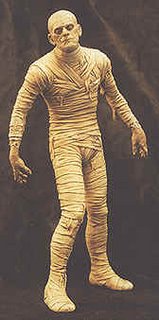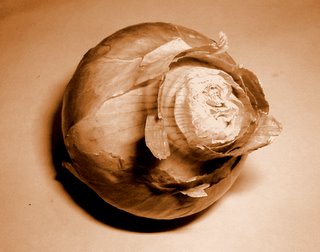 Nearly eighteen months ago a good friend died very unexpectedly. His partner walked into their kitchen first thing in the morning and found him collapsed on the floor. He had suffered a sudden and massive heart attack at the age of 49, so fast that he probably didn't even know it had happened. It was difficult for everyone, but most profoundly for his partner. The tragedy for her was indescribable, having suddenly lost her previous partner to an accidental head injury only five years before.
Nearly eighteen months ago a good friend died very unexpectedly. His partner walked into their kitchen first thing in the morning and found him collapsed on the floor. He had suffered a sudden and massive heart attack at the age of 49, so fast that he probably didn't even know it had happened. It was difficult for everyone, but most profoundly for his partner. The tragedy for her was indescribable, having suddenly lost her previous partner to an accidental head injury only five years before.We all rallied round, in various stages of shock and loss. Friendships were strengthened, rifts healed, tears shed, lessons learnt. Lots of Jamesons consumed. But for various reasons I felt unable to grieve properly for him. One reason was that my eldest daughter was struggling to deal with her first time grief. At the age of eleven she was still a child, but also able to experience the "adult" grieving emotions when losing someone who has a real and seemingly ongoing part in your life. It was painful to see her floundering like that without being able to give her any answers.
And then there was the closeness that I'd experienced with P earlier in the year when we were both dealing with our individual crises. He had been involved with C, a good friend of mine, for some time, but for some mysterious reason had been unable to commit. She had reached the end of her patience with the whole situation and had ended the relationship, joined a dating agency and met someone else. At which point, P realised how much he loved her and what he was losing. With as much Catholic angst as he could muster, he suffered serious anguish, knowing he loved her beyond belief, but believing that he just wasn't good enough for her. He regularly stood opposite her house in the shadows watching her light go out at night just to have a connection with her. And to me he poured out all his grief over losing her, and his guilt over the terrible infidelities he commited before he'd been able to see how much he loved her.
At the same time I'd had a major crisis with Mr F-M (of which I will write another time), and so we became like two shipwrecks, clinging to each other for survival. We shared our troubles, confided out deepest and darkest secrets and talked into the early hours. All without any of our circle of friends knowing.
Finally he turned the corner and saw that his happiness and C's happiness were dependent on each other, something I'd tried so hard to persuade him of. They had maybe six months of happiness together and then he died.
I grieved for him losing everything he'd wanted, though how enviable to unknowingly die at such a blissful point! I grieved for C, having again to go through such a trauma. And I grieved for myself in losing someone I cared for and who had shown care for me and my children.
The difficulty was that I couldn't outwardly acknowledge my personal grief beyond that of a casual friend, for fear of it being misintepreted, so I concentrated on looking after my daughter and tried to help her experience a good grieving process.
A couple of months later I felt as if I was falling apart. I couldn't sleep properly although I was constantly tired, I couldn't concentrate at all (and my job demands a deal of concentration) , I was suffering from dreadful mood swings, and I just felt like curling up in a ball and ignoring everyone. So I went to my doctor hoping to be referred for some counselling. Instead my GP wanted to do a load of blood tests (including liver function, which concerned me a little!).
Then the surprising denouement. My blood tests were all fine except for my hormone levels. At the ripe old age of 44 I was heading into my menopause, and all my symptoms could be explained away by mere chemistry. I now found myself in the midst of my grief for a friend having to rationalise my grief for my womanhood. Of course the latter allows a rather longer timescale for coming to terms with and I'm still not sure at which point I emerge from this particular corridor of change.
I feel as if time is running out for me. I'm on my own and I'm peeking out at my old age unable to do anything about it. I feel as if I've suddenly switched from the invincible teenager who never had to consider her decrepitude, to someone who's sitting on the edge of the slope with no other choice but to slide down.
Somehow the only thing that makes it feel right is the emergence of my elder daughter from childhood. There is something appropriate about her emerging like some butterfly as I drift off into middle age, and I absoultely treasure the joy of witnessing her changing into a beautiful young woman.
For me, I hope I will be able to grasp any happiness that life offers me, because we only have one chance. And given the opportunity I will rage, rage against the dying of the light.
 This morning on my lazy trawl around the web I came across this site which will generate a word cloud from your blog, and even print it on a t-shirt for you. I love it. It somehow fits in with my feelings about today.
This morning on my lazy trawl around the web I came across this site which will generate a word cloud from your blog, and even print it on a t-shirt for you. I love it. It somehow fits in with my feelings about today.





